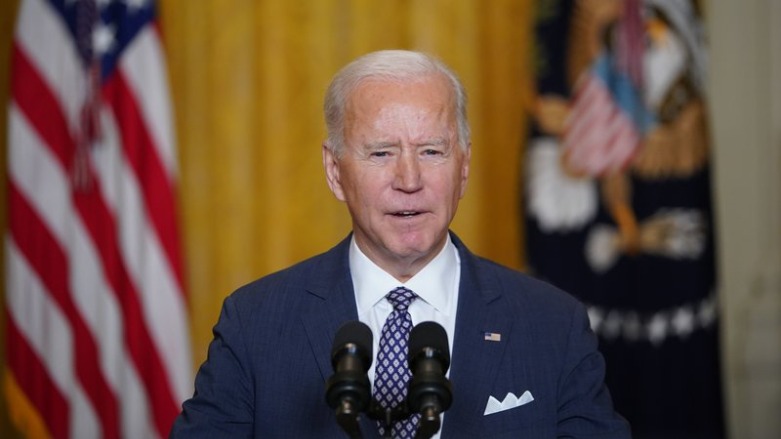Joe Biden: America is back—includes commitment to fight ISIS

WASHINGTON DC (Kurdistan 24) – In his first major foreign policy address on Friday at the 2021 Virtual Munich Security Conference, the new US president, Joe Biden, announced, “America is back.”
Biden’s statement was tantamount to a renunciation of Donald Trump’s unilateralism, and related to that, the address included a renewed US commitment to pursue vigorously the fight against ISIS, in cooperation with America’s allies.
The Munich conference followed a day after NATO Defense Ministers met and agreed to increase the number of NATO troops in Iraq from 500 to 4,000 soldiers.
Read More: NATO announces eight-fold increase in number of forces in Iraq
As distinct from the US-led Coalition against ISIS (Combined Joint Task Force-Operation Inherent Resolve: CJTF-OIR), NATO’s mission in Iraq is training, rather than combat, and until now, NATO troops were based only in Baghdad. But with the expansion of the force, they will move into other areas as well.
“The United States is fully committed to our NATO Alliance,” Biden told the Munich conference. “Our European partners” have “stood with us to counter ISIS,” as he noted that earlier this week, “NATO Defense Ministers endorsed a significantly expanded training and advisory mission in Iraq, which will be vital to the ongoing fight against ISIS.”
“We cannot allow ISIS to reopen and regroup and threaten people in the Middle East, in Europe, in the United States, and elsewhere,” the US president affirmed.
Biden’s statement signaled a US commitment to ensure the enduring defeat of ISIS, a commitment which further distinguishes him from his predecessor, who had wanted to declare that ISIS had been defeated on his watch.
Thus, during his last days in office, Trump ordered the withdrawal of 500 of the 3,000 US troops in Iraq. He also tried to withdraw US troops from Syria in 2019, but failed in that effort, as it produced a backlash among his supporters.
Read More: Broad opposition to Trump on Syria, including Republicans and evangelical Christians
Biden’s statement at the Munich conference signaled that he was not looking to make any further US troop reductions in the fight against ISIS in Iraq and Syria.
It is unclear, however, where the additional 3,500 NATO troops will come from. Pentagon Spokesperson, John Kirby, has said there are “no plans to increase US force levels” in Iraq.
Secretary of Defense Lloyd Austin made similar remarks this week, underscoring the Biden administration’s commitment to continuing the fight against ISIS.
On Thursday, addressing the NATO Defense Ministers, Austin “reaffirmed the US commitment to the enduring defeat of ISIS, respecting Iraq’s sovereignty, and ensuring long-term regional stability,” according to a Pentagon summary of his remarks.
Austin also noted—significantly—“that the recent rocket attack in Erbil underscores the importance of our continued work in the region,” while he “welcomed the expanded role for NATO Mission Iraq, and expressed confidence that all of the work done to date with the Iraqi government and security forces will lead to a self-sustainable mission.”
Austin repeated those remarks in a press conference on Friday, telling journalists that at the NATO meeting, he had “reiterated our strong commitment to the defeat of ISIS and to supporting Iraq’s long-term security, stability, and prosperity.”
